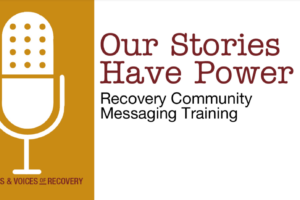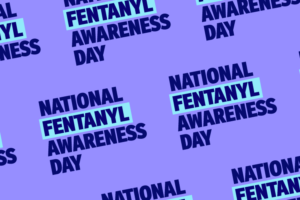Say This, Not That: Why language matters when talking about addiction
The words we use often become patterns. Sometimes these words can be unintentionally stigmatizing or hurtful. Medical professionals and public health experts now recognize addiction as a chronic brain disease, and not simply a matter of personal choice or a moral failing. However, this narrative still lingers and it dehumanizes, blames, and punishes individuals who have an addiction. For successfull recovery, it’s important for individuals to feel supported in their journey, rather than blamed, scrutinized, and shamed for their struggle.
Person-First Approach
When uncertain, a safe and easy way to discuss matters of substance use is through a person-first centered approach. Many people are most familiar with this concept in regards to disability. Placing the person first and the disability second helps eliminate stereotypes that can form. Rather than referring to someone as an “addict” or “substance abuser”, you can say “person with a substance use disorder” or “person struggling with addiction.” This is important because it emphasizes that above all else, they are first a human being.
Below is a chart that highlights best phrases to use when describing matters related to substance use:
Does it Matter?
We all have used unintentionally stigmatizing language, even medical and mental health professionals. And we might wonder if the words we use really matter. A research study titled “Does it matter how we refer to individuals with substance-related conditions?” (2009) discovered that even mental health professionals who see clients associated stigmatizing beliefs with certain terms.
This study was trying to determine whether referring to an individual as “a substance abuser” vs. “having a substance use disorder” evokes different judgments (Kelly & Westerhoff, 2009). A sample of approximately 500 clinicians were asked to read a vignette containing one of the two terms and to rate their agreement with a number of related statements. Results showed that compared to those in the “substance use disorder” condition, those in the “substance abuser” condition agreed more with the notion that the character was personally culpable, and that punitive measures should be taken. Therefore, even among highly trained mental health professionals, exposure to these two commonly used terms evokes systematically different judgments (Kelly & Westerhoff, 2009).
Calling someone an addict or a “substance abuser” perpetuates stigma. One way to help reduce this pattern is to be mindful of the language used when speaking about people who experience substance use challenges. It will not only help those who are struggling but also their family and friends. Stigma of some kind will impact all of us at some point in our lives.
J.F. Kelly, C.M. Westerhoff. (2009). “Does it matter how we refer to individuals with substance-related conditions? A randomized study of two commonly used terms.” International Journal of Drug Policy (2010) 202–207.






